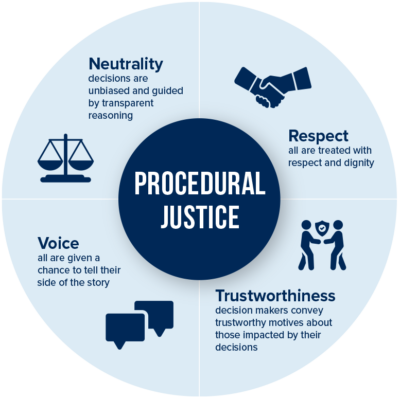City Prosecutor’s Project

APA and the Justice Collaboratory have also selected two additional sites to continue their work: the Saint Paul City Attorney’s Office and the Columbus City Attorney’s Office. The goal is to assess how city prosecutors interact with the surrounding community, implementing evidence-based practices to increase public trust.

APA Staff will work with prosecutors and staff across the selected offices to identify and enhance existing trust-building opportunities internally and externally. The Offices will also seek to test how new practices can supplement the office’s gun diversion work and other interactions with the accused, witnesses, victims, and other members of the public utilizing technical guidance from The Association of Prosecuting Attorneys, Yale Law School’s Justice Collaboratory and LaGratta Consulting. Funding support for the project will come from The Joyce Foundation, Walmart, and Arnold Ventures.

For the selected pilot agency, participation will require a commitment as follows:
- Engage in a collaborative assessment, planning, and implementation process with project staff for a minimum of 15 months
- Assign chief of staff or office equivalent to coordinate office involvement in the project, along with administrative support for scheduling calls and meetings, supplying needed policies and procedures, and identifying relevant stakeholders
- Help project staff facilitate the collection of feedback from direct users, including past witnesses, defendants, or other community members
- Host up to three in-person or remote site visits for project staff to meet with key office personnel and observe typical practices (especially those where prosecutors and staff are interacting with members of the public)
- Upon selection, the partner office will be asked to supply an electronic bulk data extraction of historical case-level data, for all cases processed by the office (including nolle prosequi, dismissals, etc.) for a period of 12-24 months. To protect privacy, the data can be stripped of Personally Identifiable Information (PII) but will require a unique identifier to allow the tracking of cases over time.